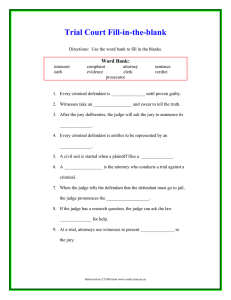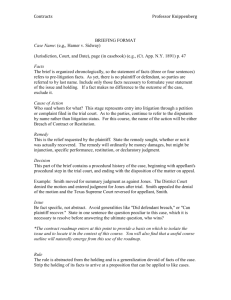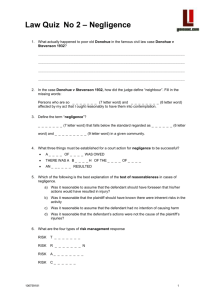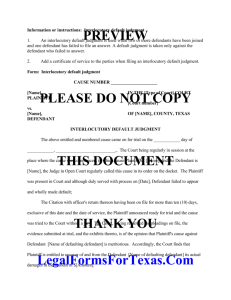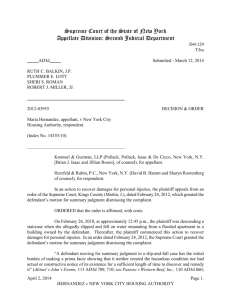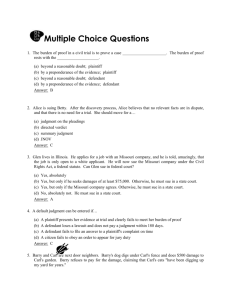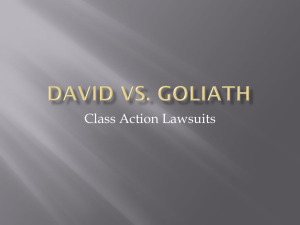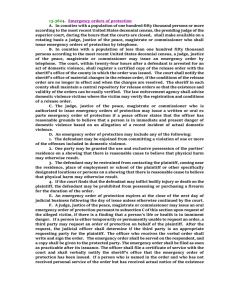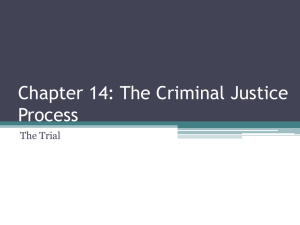in Microsoft Word Format ()
advertisement
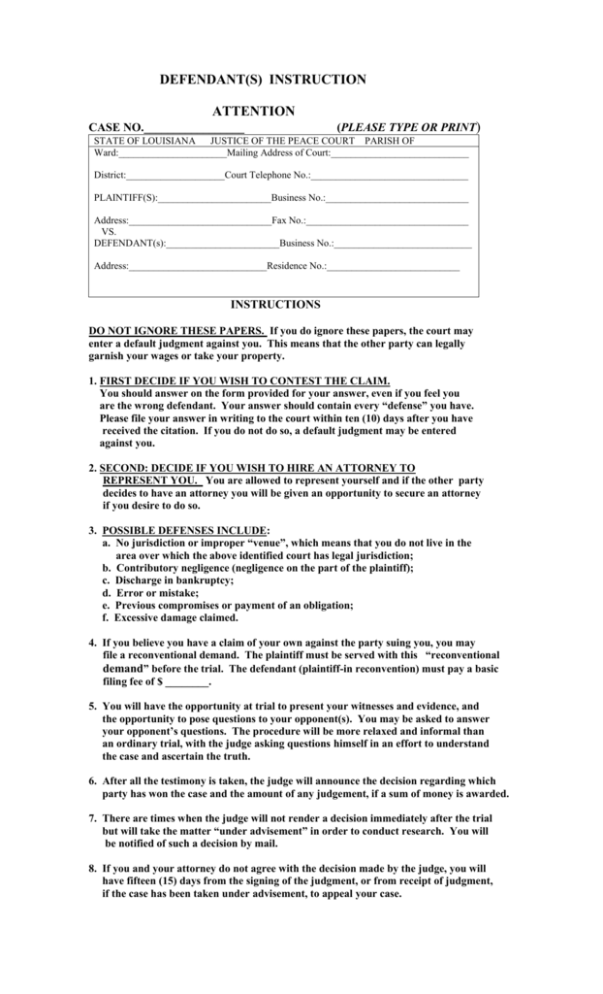
DEFENDANT(S) INSTRUCTION ATTENTION CASE NO._________________ (PLEASE TYPE OR PRINT) STATE OF LOUISIANA JUSTICE OF THE PEACE COURT PARISH OF Ward:______________________Mailing Address of Court:____________________________ District:____________________Court Telephone No.:________________________________ PLAINTIFF(S):_______________________Business No.:_____________________________ Address:_____________________________Fax No.:_________________________________ VS. DEFENDANT(s):_______________________Business No.:____________________________ Address:____________________________Residence No.:___________________________ INSTRUCTIONS DO NOT IGNORE THESE PAPERS. If you do ignore these papers, the court may enter a default judgment against you. This means that the other party can legally garnish your wages or take your property. 1. FIRST DECIDE IF YOU WISH TO CONTEST THE CLAIM. You should answer on the form provided for your answer, even if you feel you are the wrong defendant. Your answer should contain every “defense” you have. Please file your answer in writing to the court within ten (10) days after you have received the citation. If you do not do so, a default judgment may be entered against you. 2. SECOND: DECIDE IF YOU WISH TO HIRE AN ATTORNEY TO REPRESENT YOU. You are allowed to represent yourself and if the other party decides to have an attorney you will be given an opportunity to secure an attorney if you desire to do so. 3. POSSIBLE DEFENSES INCLUDE: a. No jurisdiction or improper “venue”, which means that you do not live in the area over which the above identified court has legal jurisdiction; b. Contributory negligence (negligence on the part of the plaintiff); c. Discharge in bankruptcy; d. Error or mistake; e. Previous compromises or payment of an obligation; f. Excessive damage claimed. 4. If you believe you have a claim of your own against the party suing you, you may file a reconventional demand. The plaintiff must be served with this “reconventional demand” before the trial. The defendant (plaintiff-in reconvention) must pay a basic filing fee of $ ________. 5. You will have the opportunity at trial to present your witnesses and evidence, and the opportunity to pose questions to your opponent(s). You may be asked to answer your opponent’s questions. The procedure will be more relaxed and informal than an ordinary trial, with the judge asking questions himself in an effort to understand the case and ascertain the truth. 6. After all the testimony is taken, the judge will announce the decision regarding which party has won the case and the amount of any judgement, if a sum of money is awarded. 7. There are times when the judge will not render a decision immediately after the trial but will take the matter “under advisement” in order to conduct research. You will be notified of such a decision by mail. 8. If you and your attorney do not agree with the decision made by the judge, you will have fifteen (15) days from the signing of the judgment, or from receipt of judgment, if the case has been taken under advisement, to appeal your case.

